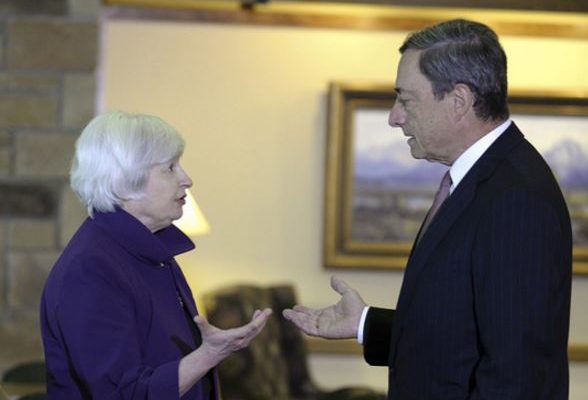
One of the greatest monetary experiment in financial history has been the global central bank buying of government debt. This has been touted as a form of “money printing†that was supposed to produce hyperinflation. That never materialized as predicted by the perpetual pessimists. Nevertheless, the total amount of Quantitative Easing (QE) adding up the balance sheets of the Fed, the ECB and BOJ is now around $13.5 trillion dollars, which by itself is a sum greater than that of China’s economy or the entire Eurozone.

If QE failed to produce inflation, then ending QE may actually produce the inflation people previously expected. Where’s the strange logic in that one? Well you see, it really does not matter how much money you print, if it never makes it into the economy, it will not be inflationary.

Â
The craziest think the Fed did was create excess reserves. The bankers complained that the Fed was buying the government debt so they would have no place to park their money. The Fed then accommodated them creating the excess reserves and paid them interest for absolutely no reason whatsoever. Almost $3 trill was parked at the Fed collecting interest so that $4.5 trillion of “printing†money never made it out the door. Hence, there was no inflation to speak of (outside of healthcare which always rises no matter what).
So how does stopping QE actually create inflation? The withdrawal of the Federal Reserve (Fed), the European Central Bank (ECB) and the Japanese central bank from the QE programs will lead to an increase in yields on the bond markets sending the financing costs for the states higher. This is predicated upon the notion that people will continue to buy government debt. Governments have increased their spending sharply because interest rates were effectively zero and the central banks were buyers. Now comes the moment of truth. Has QE undermined the bond market to such an extent that only a blind fool will buy government debt in an atmosphere of rising rates?

